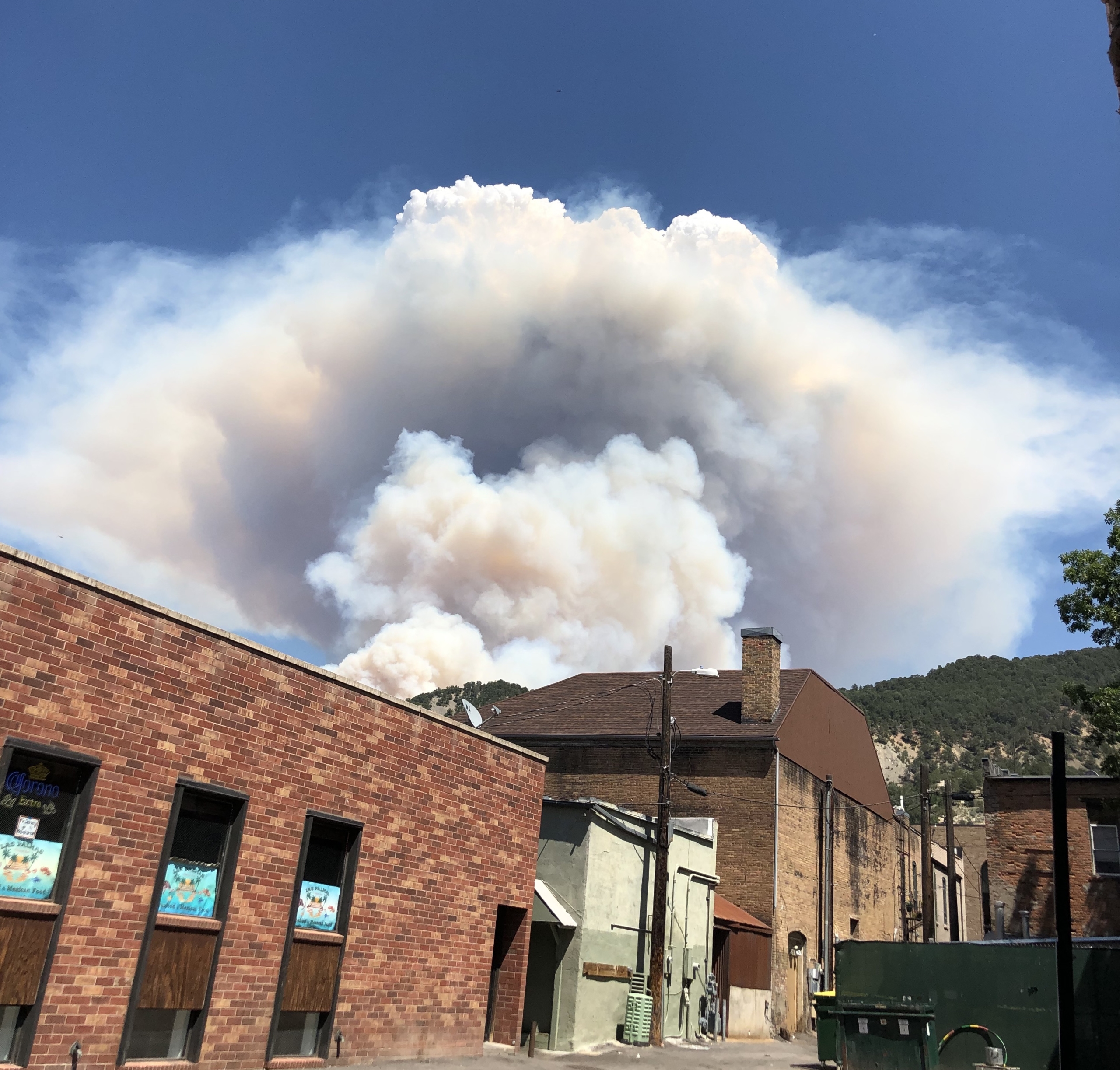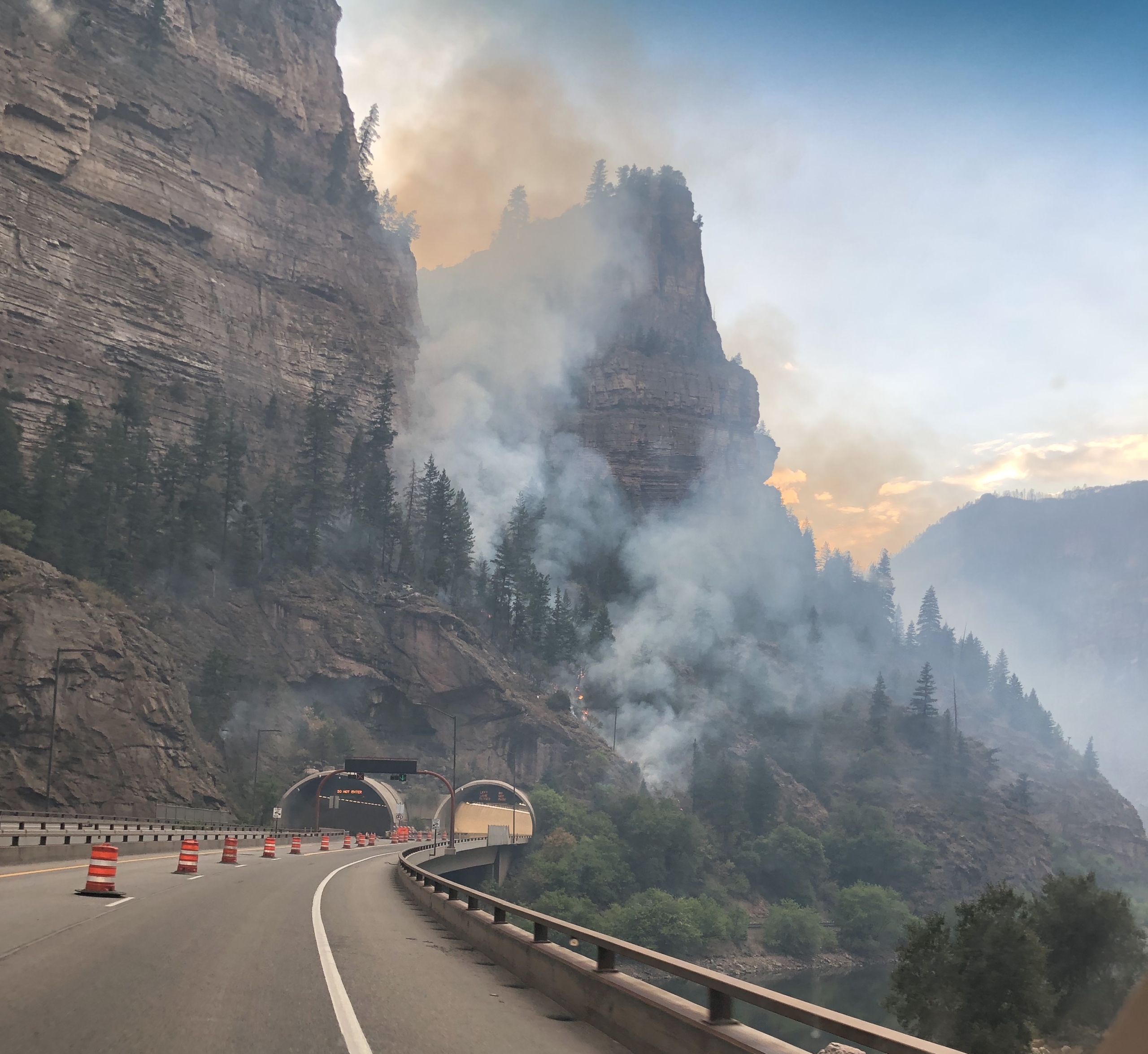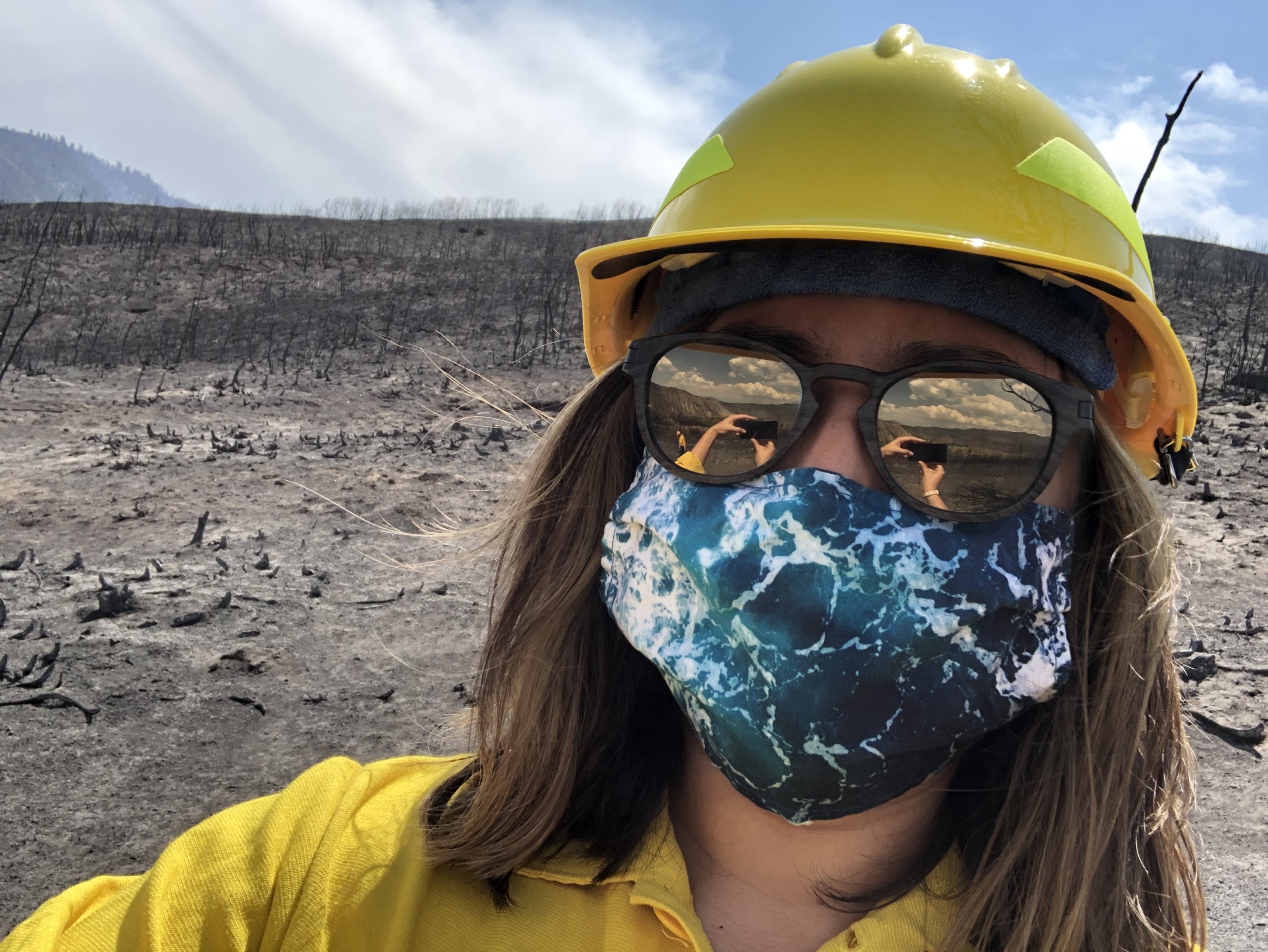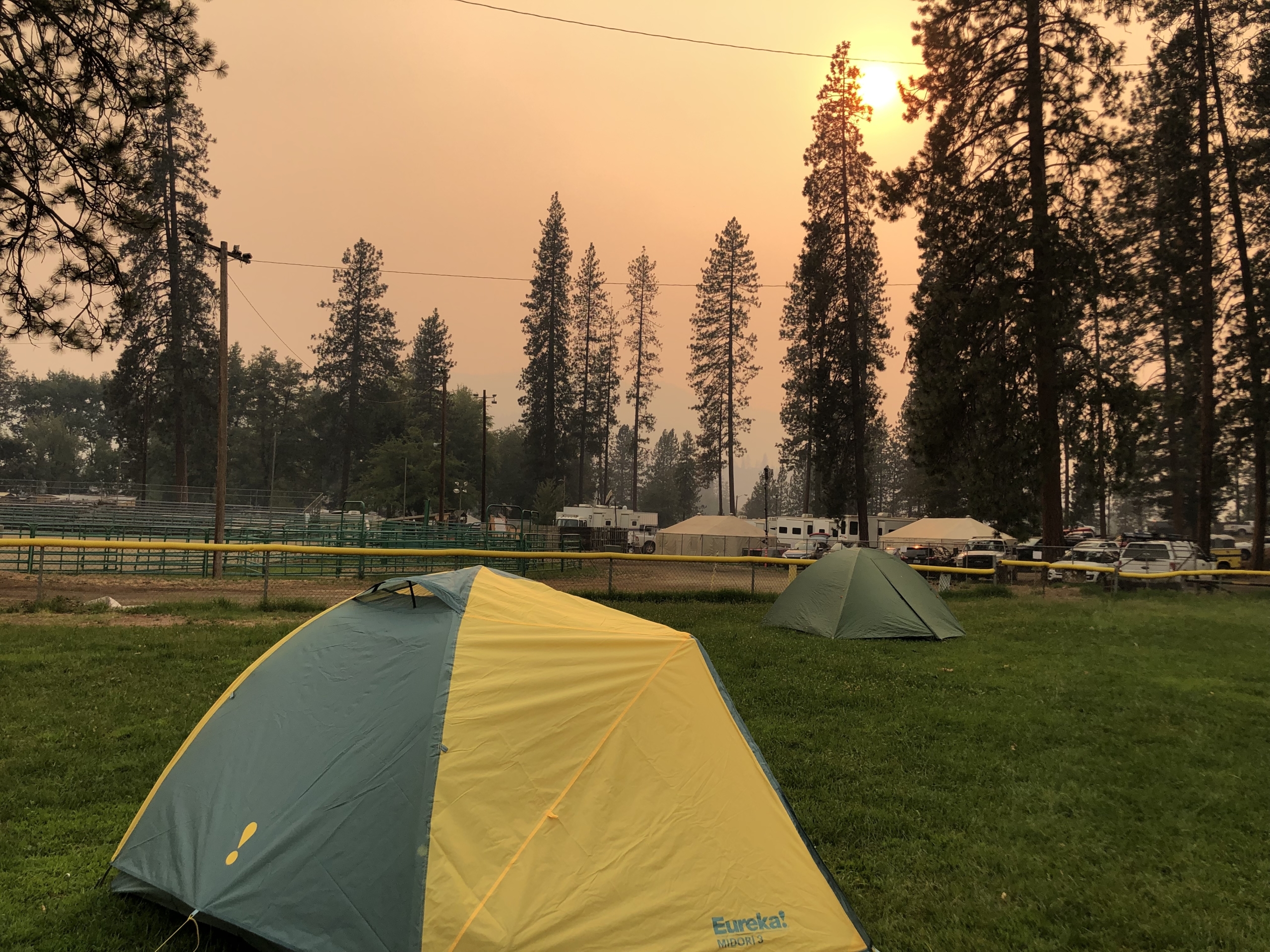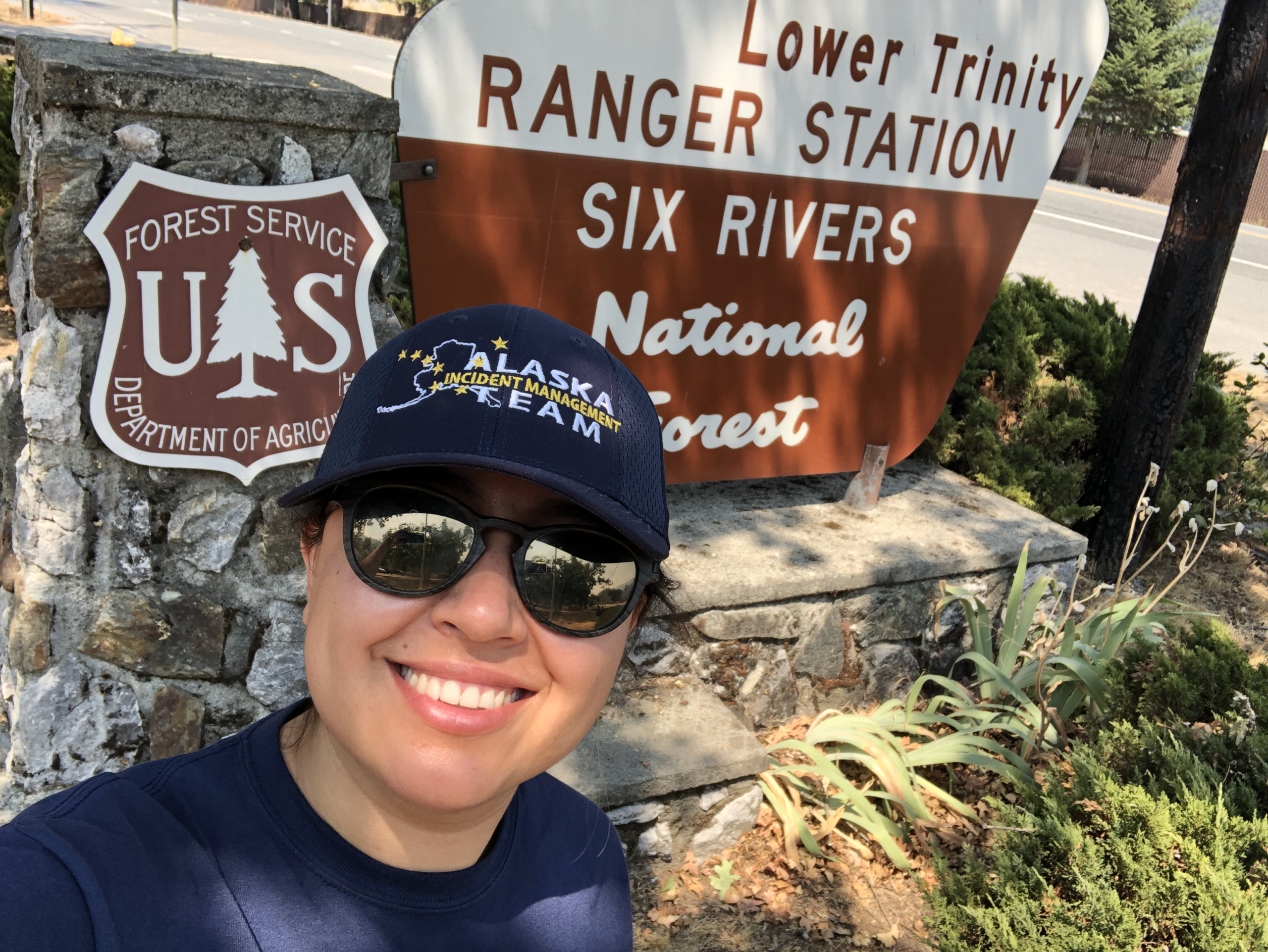We know that climate change is making wildfires larger, more destructive, and more dangerous. As the West gets hotter and dryer, more Coloradans will face the possibility of fire encroaching on their homes.
Elizabeth Velasco experienced this reality firsthand when the Grizzly Creek Fire threatened her hometown of Glenwood Springs in 2020. She jumped in to help interpret and translate information to make sure Spanish-speaking residents could stay in the loop. Her experience launched a new career path that took her to fires across the country and gave her deeper insight into how climate-driven environmental disasters are disproportionately impacting communities of color in rural areas like Glenwood Springs and the Western Slope of Colorado.
Here, Elizabeth shares how she’s taking what she learned from the frontlines of wildfires to the fight for environmental justice.
On a hot afternoon in August of 2020, I was having lunch in downtown Glenwood Springs when I saw a huge cloud of smoke billowing in the sky above us. Soon, the sirens started. Within a couple of days, our town was hanging on for dear life.
The Grizzly Creek Fire grew from a spark off I-70 through Glenwood Canyon to a blaze spanning thousands of acres and threatening to consume the town of Glenwood Springs—my home—in a matter of hours.
My family was glued to the news. Smoke blocked the sun in the sky, and we saw ashes rain down on Glenwood Springs. The smoke was so thick I got headaches, a runny nose, a sore throat, a cough and lethargy, even though I’m young and healthy. We were under pre-evacuation orders, but the highways were a mess, with I-70 through Glenwood Canyon closed and backup routes clogged up. I’m sure I’m not the only one who couldn’t stop thinking about the what-ifs: How would we escape if we had to? Would we be able to save our pets? What about my elderly father-in-law?
I was scared. But I was even more worried about members of my community who didn’t have access to updated information about the fires in their own language. So I jumped in right away to help.
As the owner of the leading linguistics service company in the Roaring Fork and Colorado River Valleys, and a first-generation immigrant from Mexico myself, I knew how important it was to translate information about the Grizzly Creek Fire. The population of the Roaring Fork Valley, where I call home, is about 30 percent Latino, and many in my community are monolingual Spanish speakers. In order to stay safe in these urgent situations, people need access to information in their own language.
So after Voces Unidas, a local advocacy group, spoke up for the need for translation and interpretation, I volunteered. I had been a medical interpreter for years, so I had the training and connections to hit the ground running. My background as a community organizer helped, too. I was able to connect public information officers to sources and leaders people trusted. Soon, the incident management team hired my small business to support their communications.
The work was hard, but I loved it. I learned how the incident management system worked, and also saw the gaps. The leadership of these emergency services are not very diverse, and few are bilingual, so even with the best intentions, they didn’t know how to reach everyone. We need to bring in more diverse, multicultural, multilingual voices to federal and local agencies to better serve our communities.
If we don’t, it can have dangerous consequences. For example, in 2018, officials handling the Lake Christine Fire in the nearby town of El Jebel told Latino residents they would need a “green card” to re-enter their homes when the fire danger had cleared, creating confusion and fear for undocumented residents who did not have a “green card” for residency. Our communities need emergency services to deliver these messages in a timely manner, that are culturally relevant, from a trusted source, and in as many forms as possible. Otherwise, we risk leaving people behind.
I wanted to continue being a part of the team and helping communities like my own. So I trained to be a Public Information Officer for wildland fire, which involved taking classes on Incident Management and getting my Wildland Firefighter Type 2 certification. The next summer, I was deployed to megafires in California and Oregon. There, I found communities similar to the Roaring Fork Valley: diverse populations living in what is called the wildland-urban interface, who experience similar risks, from gridlocked evacuation routes to lack of culturally-relevant emergency information.
One of my favorite parts of this job was learning from tribal communities who see how closely everything is connected. They have a traditional knowledge of land management practices that our federal government is way behind on. It made me realize that there’s a lot more we can be doing to make our communities more fire-resilient.
And the reality of climate change means we have to face this issue now. Wildland firefighters used to operate within a “fire season.” But we don’t have a fire season anymore—we have a fire year. Just look at the devastating wildfires in Boulder County that happened at the end of December. As we have hotter temperatures and drier climate, we’re going to see more and more fires.
As a PIO, I saw that we have good systems for responding to disasters when they happen. But we need to work on the proactive side, addressing the root causes of these issues.
When we think about preventing fires, there’s an individual role, like fire safety awareness and people fireproofing their homes. There’s also a role for communities, strengthening their emergency management systems and making them more inclusive. And there’s the policy level, we need progressive legislation to make sure we’re addressing climate change.
Our house is on fire. We only have one planet, and we need to start taking care of it.
This policy change is what I’m focused on now as I start my campaign for State House. The Roaring Fork valley’s population is about 30 percent Latino, so why doesn’t our leadership reflect that? We know our community best, and we know the solutions we need.
That includes solutions that recognize that we are connected with nature. As we work to protect the environment, we also need to help communities carve a path forward for better lives.
For example, we’re still dealing with the impacts of the Grizzly Creek Fire, with mudslides causing major road damage and closures—our community still needs access to better information in Spanish. Also, we’re starting to see shorter winters and less snowpack, which threatens our economy and jobs that depend on the ski industry.
And wildfires are not going away, even when they’re not so close to home. The past few summers, we’ve had days where the air quality gets so bad from wildfire smoke and ozone pollution that we tell people to stay inside. But many of our Latino community work in construction, landscaping, agriculture or other outdoor jobs where that isn’t an option. We need to protect their health, too.
I see that for a long time the environmental movement has been very racist. The door opened for me when I got the opportunity to learn to snowboard and work at an on-mountain restaurant. But these activities that let us enjoy the beautiful places we live in are expensive; they’re not accessible to many of our Latino residents. Plus, if you live two hours away from your job because you’ve been priced out of housing in the area, and you have to drive four hours each day, you don’t have time to recreate.
Environmental justice is so important because it affects our health. We only have one planet, and we have finite resources. But to bring our community into this movement, we have to do a better job of communicating how deeply these issues are related, and how they impact our health and livelihoods. If you don’t have enough food to eat, a place to live, or access to important information in your language, you’re not going to be comfortable sharing your opinion.
We need leaders that reflect our communities, and spaces that people can come as they are and feel safe to speak the language of their heart. From working on the frontlines of wildfires to joining Protegete and Conservation Colorado at Latino Advocacy Day, that’s what I am fighting for. I hope you can join me!


